Films from the country "iran", sorted by revenue

Marooned in Iraq (2002)
, 1h48Directed by Bahman Ghobadi
Origin Iran
Genres Drama, War
Mirza, a famous Kurdish musician, hears that his ex-wife Hanare is in trouble. He, accompanied by his two sons, embarks on an adventurous journey across the Iran-Iraq border to find her.

I'm Taraneh, 15 (2002)
, 1h40Origin Iran
Genres Drama
Actors Taraneh Allidousti, Negar Javaherian
Fifteen-year-old Taraneh, whose widowed father is in jail, refuses the unwanted attentions of carpet salesman Amir - until Amir's mother talks Taraneh into accepting Amir's marriage proposal. Within four months the couple realize that they are incompatible, they divorce and Amir emigrates back to Germany. When Taraneh discovers she is pregnant she decides against all advice and intense social pressure, to keep the baby.
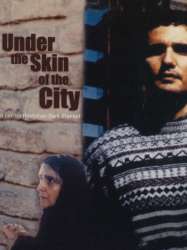
Under the Skin of the City (2001)
, 1h32Directed by Rakhshan Bani-Etemad
Origin Iran
Genres Drama
Actors Baran Kosari, Mehraveh Sharifinia
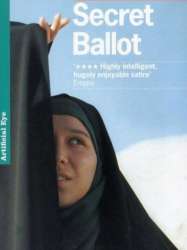
Secret Ballot (2001)
, 1h45Origin Iran
Genres Comedy
The story begins at a small, two-man army post on a remote island. It is voting day, and an election agent is due to arrive by boat. A young woman arrives, collects the official voting box, and demands that the soldier on duty escort her around the island. They climb into a military jeep and begin driving around, looking for voters. The nameless woman is totally dedicated to her duty, a true believer in the importance of voting, a tireless worker, rather voluble and certainly not submissive. This confuses and angers the dim-witted soldier, who feels that a man should be the voting agent. Chador and all, she's clearly a liberated woman, a "city gal" as described by the soldier.

The Hidden Half (2001)
, 1h43Directed by Tahmineh Milani
Origin Iran
Genres Drama
Actors Niki Karimi, Atila Pesyani, Afarin Obeysi
The story is told through a manuscript which Fereshteh (Niki Karimi) leaves for her husband (Atila Pesiani) to read. This manuscript tells the story of her life when she was 18 years old and attending the University of Tehran. Fereshteh becomes interested in the fall of the Shah and other such political topics, and so joins a revolutionary, communist group. She gives out fliers, which was illegal as it was the Islamic Revolution period of 1978. Through the group, the young girl meets an older man, a pro-Mossadeq-era intellectual and magazine editor, Roozebeh (Mohammad Nikbin), who is intrigued by her “naive dedication to a noble cause". While government authorities inspect the university and streets of Tehran for revolutionary activists, Roozebeh presents Fereshteh with an opportunity to flee abroad to England. However, when Roozebeh’s wife finds out about the young lady, she informs her of Roozebeh’s family. Thus, when Fereshteh finds out about the intellectual’s wife and son, as well as the fact that she is a lookalike of his childhood sweetheart, she cuts all contact with him. She then marries her husband and does not inform him of her hidden past, only to reveal it to him when he tells her about the woman who is sentenced to death, whom he is interviewing for an appeal. Fereshteh does this in hopes that her husband will listen to the woman in a less critical and more understanding view, and to reveal to him her hidden half.
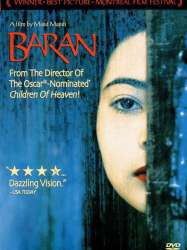
Baran (2001)
, 1h34Directed by Majid Majidi
Origin Iran
Genres Drama, Romance
Actors Reza Naji, Christopher Maleki
It is winter in Teheran. Lateef is 17. He works at a building construction site managed by MEMAR, the site foreman. Lateef's job is to serve tea and prepare food for the workers with whom he is always quarrelling. The workers come from all parts of Iran, particularly from Iranian Azerbaijan (Azeris are referred as "Turks" in the film). Some workers are Afghan refugees from war-torn Afghanistan. They have no identity cards and are employed illegally as cheap labour. When the labour inspectors show up, the Afghan workers must hide.

ABC Africa (2001)
, 1h24Directed by Abbas Kiarostami
Origin Iran
Genres Documentary
Themes Films about children, Medical-themed films, Documentary films about health care, HIV/AIDS in film
Actors Abbas Kiarostami
En avril 2000, en Ouganda, Abbas Kiarostami et son assistant, Seifollah Samadian, sollicités par une association humanitaire, le Fida, débarquent à Kampala. Pendant une dizaine de jours, ils découvrent de nombreux enfants ayant perdu leurs parents à cause du Sida. Leur caméra témoigne d'une Afrique joyeuse malgré la souffrance et la maladie.
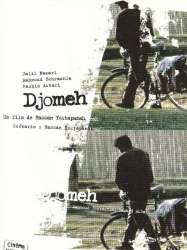
Djomeh (2000)
, 1h34Origin Iran
Genres Drama
Djomeh est un jeune Afghan qui est venu vivre en Iran à cause de problèmes familiaux. Travaillant comme laitier, il rencontre la discrimination des villageois iraniens et le dédain de Habib, un compatriote afghan à qui Djomeh a fait confiance. La seule personne qui lui montre de la sympathie est son employeur, que Djomeh demande à intercéder pour lui en demandant à une femme du village de se marier.
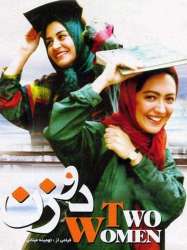
Two Women (1999)
, 1h36Directed by Tahmineh Milani
Origin Iran
Genres Drama
Themes Feminist films, Films about domestic violence, Political films
Actors Niki Karimi, Merila Zarei, Atila Pesyani
The film starts at some fourteen years after Fereshteh (Niki Karimi) and Royā (Merilā Zāre'í) became friends, while studying architecture at a university in Tehran. The events in the life of Fereshteh over the course of the preceding fourteen years are revealed through a series of flashbacks that represent Feresheh's and Royā's reminiscences.
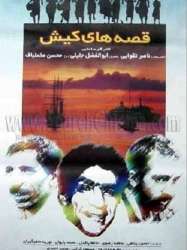
Tales of Kish (1999)
, 1h12Directed by Mohsen Makhmalbaf, Abolzfaz Jalili
Origin Iran
Genres Drama
Actors Hossein Panahi, Atefeh Razavi

The Color of Paradise (1999)
, 1h30Directed by Majid Majidi
Origin Iran
Genres Drama, Romance
Themes Films about disabilities
The story revolves around a blind boy named Mohammed who is released from his special school in Tehran for summer vacation. His father, shamed and burdened by Mohammed's blindness, arrives late to pick him up and then tries to convince the headmaster to keep Mohammed over the summer. The headmaster refuses, so Mohammed's father eventually takes him home.

Son of Maryam (1998)
Origin Iran
Rahman (Falsafin) Can is a milk delivery boy in a small village in Iran and is also the village's mosque crier. One day, he delivers some milk to the priest (Dergabrilian) living in the church on the outside of town. Amidst the villages preparations for Ashura, the priest's preparations for the Feast of Mary go unnoticed except by young Rahman. The young boy befriends the priest and spends his time sneaking his blind friend Davoud (Nainizadeh) into the church and helping the priest prepare for the feast, much to his father and grandmother's chagrin.
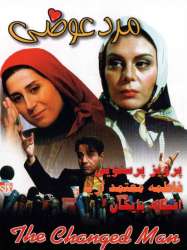
The Changed Man (1998)
, 1h40Directed by Mohammad Reza Honarmand
Origin Iran
Genres Comedy, Romantic comedy, Romance
Actors Parviz Parastui, Fatemah Motamed-Aria, Zohreh Mojabi, Mahmoud Pak Niat, Reza Shafiei Jam, Nader Soleimani
Khosro Paziresh, the inventor of a magical washing powder, goes to a company to sell his invention but he falls down the elevator and gets transferred to a hospital. Darioosh Jam, the CEO of the company, dies from a stroke after finding out that his company is bankrupt and he too gets transferred to the same hospital. The transplant team in the hospital, transplant Khosro's brain in Darioosh's body and Khosro stays alive in the CEO's body.

The Mirror (1997)
, 1h35Directed by Jafar Panahi
Origin Iran
Genres Drama
Actors Aida Mohammadkhani
Mina, a first-grader, finds her mother has failed to pick her up from school. The movie is about her endeavor to find her way home amidst the noise, confusion and chaos of Tehran. Mina is dressed in school uniform (with a head scarf), has one arm in a cast and is holding a school bag in the other. She meets a lot of people on her way and most of them try to help her while others are surprisingly apathetic to her situation. Eventually, the movie takes a turn when the girl looks into the camera for the first time, breaking the fourth wall, and someone shouts from off-screen, "Mina, don't look into the camera!" The movie is a real life capture of events thereon (or that is how it seems). Mina announces that she doesn't want to act in the movie any more and wants to go home. In the end she goes home after returning the microphone.
 Connection
Connection